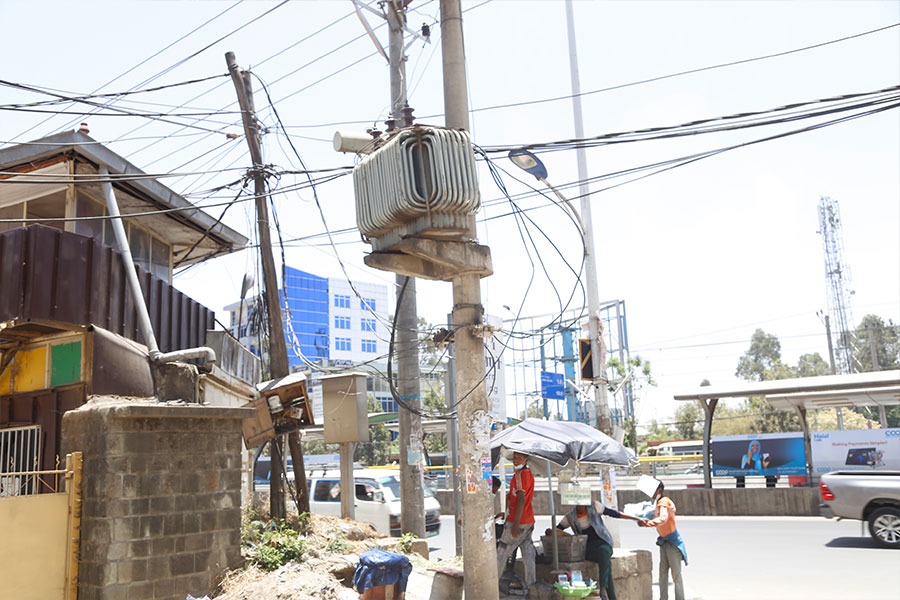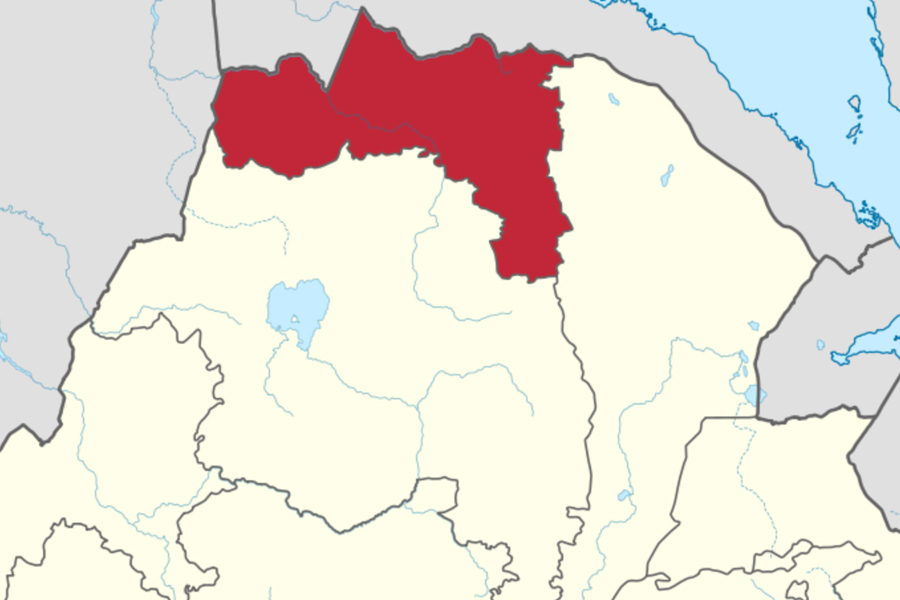
Feb 9 , 2019
By
Ethiopia’s macroeconomic situation is as precarious as its political condition.
There are hopeful developments. Geopolitics dictates that a region as strategic as the Horn gets focus, which puts the largest and most populous country fall within the calculations of superpowers. At the moment this seems to be good for Ethiopia in the financing agreements that the nation is striking, especially if it is handled well and does not compromise policy sovereignty.
The diaspora is also a lot more comfortable with the current administration in power, as is evident with growing remittances. The Diaspora Fund has not performed as well as it was expected to, or should have, but the foreign currency Ethiopians, or nationalities of that origin, are sending to their loved ones at home is encouraging, having passed the five billion dollar mark last fiscal year for the first time in history.
But then again there is the performance in goods’ export. It is becoming something of an Achilles heel, an issue that has succeeded in getting a great deal of the government’s attention but which has nonetheless managed to disappoint.
Billions of Birr have went in building infrastructure, and yet, goods’ export is proving that it takes much more than that for Ethiopia to become a manufacturing hub. It requires skilled human power, smooth supply chains and flexible policies, all of which combine to form efficiency.
Ethiopia is not able to facilitate that efficiency at the moment, thus the significant lag in a sector that even the International Monetary Fund (IMF) had targeted, in the early 2010s, would be performing at least twice as well it is doing at this point.
That has not been the case, and it does not seem to be a possibility for some time to come. This was evident to a certain extent considering ongoing political instability, foreign currency crisis and the government’s sheer incapacity to come up with ideas that do not subscribe to the Asian model of the 20th century, although the global market is substantially different today.
Export performance in the first half of this fiscal year was thus one more hint that matters were not going to turn out to be as cheery as the government’s targets predicated them to be. It registered 1.21 billion dollars in the period, gaining the country 10pc less in foreign currency than it did last year, according to the Ministry of Trade & Industry’s report to parliament.
This is a matter that deserves all the attention the government can afford it. The inability to rise much higher than the three billion dollar mark for the better part of this decade should be a lesson that what matters most is not some single factor to an economy.
The government’s investment in infrastructure was not without its benefits but all the eggs should not have been put in one basket. The initial investments in infrastructure should have been followed by outlays to bolster supply chains, create a competitive space for businesses and professionalising the public sector. There should have been a gap between the series of expenditures in infrastructure to allow for assessment.
This is a course the government should begin now. But a time of political crisis as is the case at the moment dictates that there be newer ways of advancing development. It can be argued that the private sector should be brought into the loop but there are few things that businesses alone can do if the country continues to be starved for foreign currency.
Remittances are the most surefire means of doing this. It is easy money for a government running low on foreign currency reserves. The government should continue to lobby this case as much as possible.
It has to be realistic though. There will indeed be less success on ideas such as the Diaspora Fund or by aggressively hunting down black market traders. It can do a lot better by making it as easy as possible to send funds to Ethiopia, through platforms that offer online money transfer services.
This is the only way that the government can make the diaspora more comfortable to help out - because it benefits both the country as well as its recipients. And if it does not compete with black market rates, it is at least a much faster and efficient means of formally sending money to loved ones.
PUBLISHED ON
Feb 09,2019 [ VOL
19 , NO
980]

Sunday with Eden | Aug 17,2019

My Opinion | Apr 20,2019

Viewpoints | Jul 09,2022

Radar | Apr 10,2021

My Opinion | Jun 12,2021

My Opinion | Jun 12,2021

Verbatim | Mar 02,2019

Fortune News | Nov 21,2020

My Opinion | Jul 25,2020

Viewpoints | Mar 30,2019

Photo Gallery | 174331 Views | May 06,2019

Photo Gallery | 164557 Views | Apr 26,2019

Photo Gallery | 154721 Views | Oct 06,2021

My Opinion | 136661 Views | Aug 14,2021
Editorial | Oct 11,2025

Dec 22 , 2024 . By TIZITA SHEWAFERAW
Charged with transforming colossal state-owned enterprises into modern and competitiv...

Aug 18 , 2024 . By AKSAH ITALO
Although predictable Yonas Zerihun's job in the ride-hailing service is not immune to...

Jul 28 , 2024 . By TIZITA SHEWAFERAW
Unhabitual, perhaps too many, Samuel Gebreyohannes, 38, used to occasionally enjoy a couple of beers at breakfast. However, he recently swit...

Jul 13 , 2024 . By AKSAH ITALO
Investors who rely on tractors, trucks, and field vehicles for commuting, transporting commodities, and f...

Oct 11 , 2025
Ladislas Farago, a roving Associated Press (AP) correspondent, arrived in Ethiopia in...

Oct 4 , 2025
Eyob Tekalegn (PhD) had been in the Governor's chair for only weeks when, on Septembe...

Sep 27 , 2025
Four years into an experiment with “shock therapy” in education, the national moo...

Sep 20 , 2025
Getachew Reda's return to the national stage was always going to stir attention. Once...

Oct 12 , 2025
Tomato prices in Addis Abeba have surged to unprecedented levels, with retail stands charging between 85 Br and 140 Br a kilo, nearly triple...

Oct 12 , 2025 . By BEZAWIT HULUAGER
A sweeping change in the vehicle licensing system has tilted the scales in favour of electric vehicle (EV...

A simmering dispute between the legal profession and the federal government is nearing a breaking point,...

Oct 12 , 2025 . By NAHOM AYELE
A violent storm that ripped through the flower belt of Bishoftu (Debreziet), 45Km east of the capital, in...